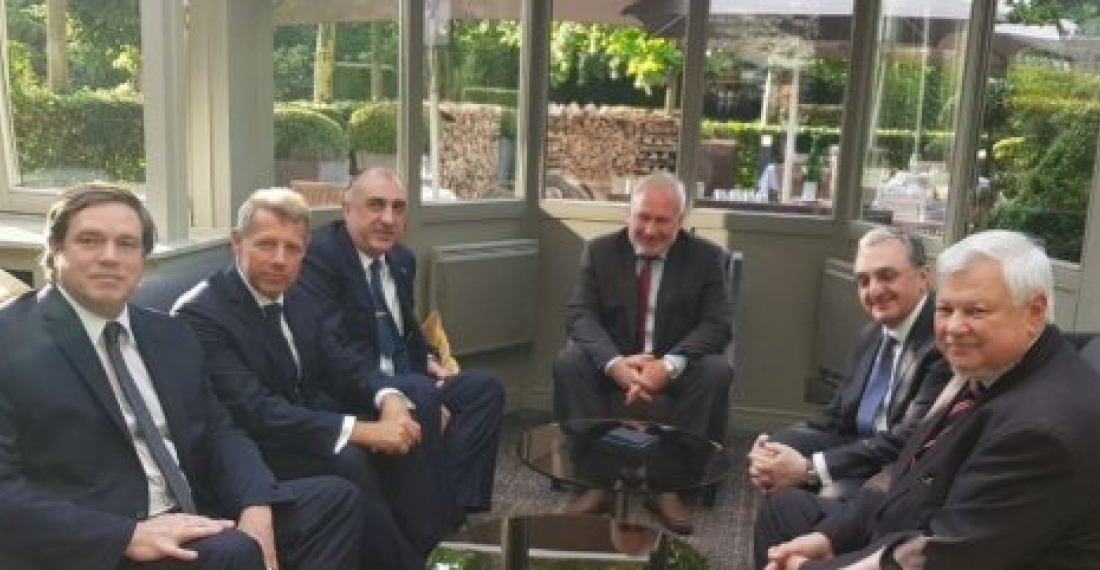Updated at 13.15 GMT/12 July 2018 with statement of the OSCE Minsk Group co-Chairmen
The Foreign Ministers of Armenia and Azerbaijan met in Brussels on Thursday, as efforts continue to re-start the peace negotiations between the two countries on the Karabakh issue. This was the first opportunity for the new Armenian foreign minister Zohrab Mnatsakanyan, to meet his Azerbaijani counterpart Elmar Mammadyarov following his appointment after the recent political changes in Armenia.
A statement issued by the co-Chairmen of the OSCE Minsk process at 13.00 GMT on Thursday said that the
"The Ministers exchanged views regarding the situation on the ground and discussed next steps and parameters for re-engaging in substantive negotiations. The sides considered several issues for future meetings, including a range of possible confidence-building measures.
The Co-Chairs stressed the importance of reducing tensions and avoiding inflammatory rhetoric. The Co-Chairs also reiterated their commitment to helping the sides find a peaceful solution to the conflict based on the core principles of the Helsinki Final Act, including the non-use or threat of force, territorial integrity, and the equal rights and self-determination of peoples.
The Ministers agreed to meet again in the near future under the auspices of the Co-Chairs."
In a statement earlier the Armenian Foreign Ministry said,
"The Armenian Foreign Minister thanked the co-chairs of the OSCE Minsk Group for organizing the meeting and stressed the importance of the process under their auspices, as well as the need to preserve the dynamics of the negotiation process.
The foreign ministry said the meeting was of a fact-finding nature and was aimed at getting acquainted with the positions of the parties.
Zohrab Mnatsakanyan stressed that there is no alternative to the negotiation process, and in this context noted the importance of creating an atmosphere conducive to peace, strengthening mutual trust, steps to reduce tensions, strict adherence to the ceasefire regime and refusal of aggressive rhetoric. The Foreign Minister stressed that the realistic and constructive engagement of all parties is of paramount importance for the effectiveness of efforts aimed at achieving a lasting peace."
Earlier the spokesperson of the Azerbaijani Foreign Ministry Hikmet Hacjiev tweeted a picture of the meeting, showing the two Ministers with the representatives of France, Russia and the United States - the three co-chair countries, and the OSCE Chairmanship Special Representative, Ambassador Kasperzyk. Hacjiev told the APA news agency later that the format and process of the negotiations were discussed, as well as the next plans.
read more: Monday Commentary: an opportunity not to be missed
source: commonspace.eu with agencies
photo: The Foreign Minister s of Armenia and Azerbaijan with OSCE mediators in Brussels on 11 July 2018 (picture courtesy of the twitter feed of Hikmet Hadjiev)







